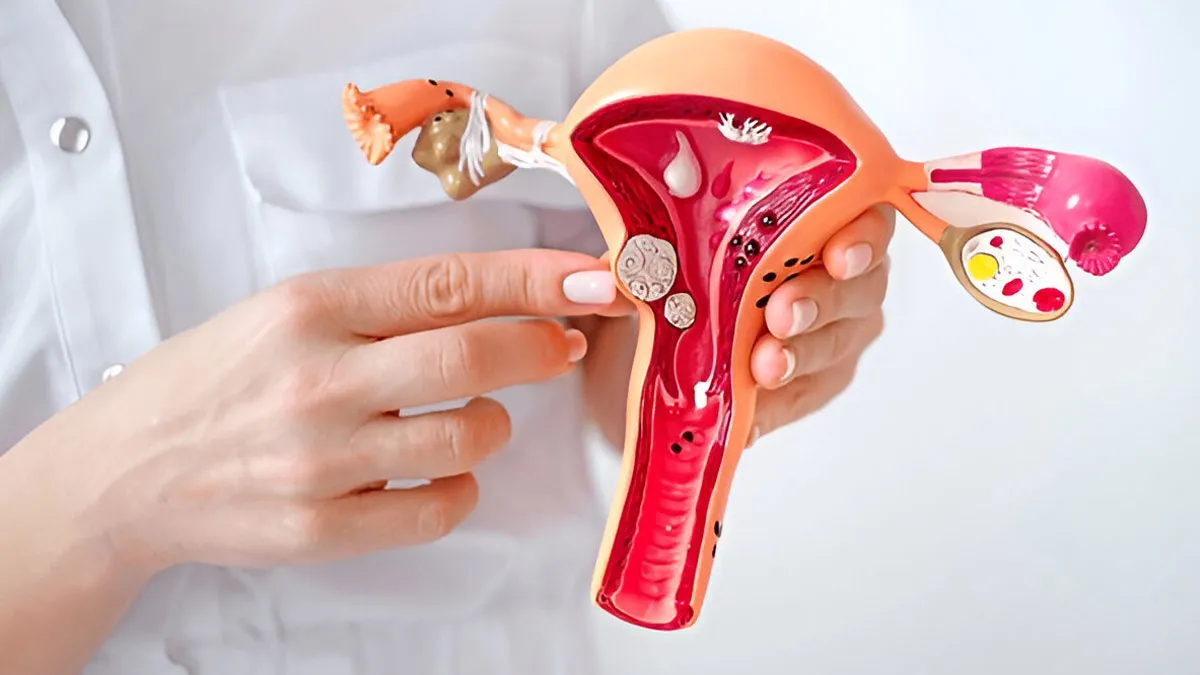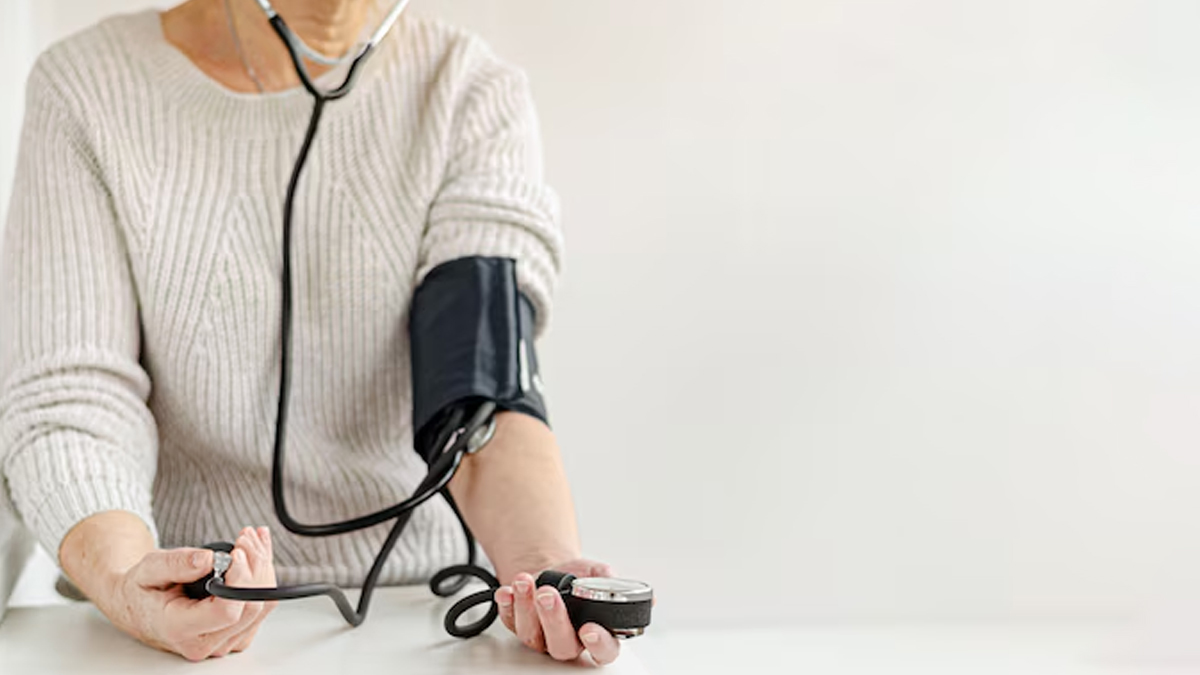
For many women, fibroids are a frustrating mystery. They seem to attack at random, grow slowly, and cause a mixture of distressing symptoms, such as heavy bleeding, menstrual cramps, aching lower back, bloating, and even problems with becoming pregnant and maintaining it.
Table of Content:-
Fibroids are thought to be a purely hormonal issue. Although oestrogen and progesterone play significant roles, that solution only tells part of the story. New studies show something fundamental: your blood pressure, Vitamin D levels, and lifestyle habits might contribute as much to fibroid risk as your hormones. We spoke to Dr Madhuri Vidyashankar P, Consultant Gynaecologist, Hysteroscopic and Laparoscopic Surgeon, Motherhood Hospitals, Indiranagar, Bengaluru, who shared insights on the same.
What Are Fibroids?

“Fibroids are non-cancerous growths that develop from muscle cells within the uterus and can be located within or outside the uterus. They can exist in different forms, sizes, and quantities,” said Dr Vidyashankar.
Surprisingly, nearly 70% of women will have fibroids by the age of 50. The troubling fact, however, is that most women remain unaware of their presence until the fibroids start causing symptoms to a level that disrupts day-to-day functioning, according to a 2022 study.
Signs Of Fibroids
Here are some of the common causes of fibroids as listed by Dr Vidyashankar:
- Heavy menstrual bleeding
- Prolonged menstrual periods
- Lower abdominal pain and pressure
- Constipation accompanied by frequent urination or dyspareunia.
Fibroids sometimes remain undiagnosed as they are confused with other symptoms, such as Polycystic Ovary Syndrome (PCOS), endometriosis or even Irritable Bowel Syndrome (IBS) because of similar symptoms of bloating and cramps.
Also Read: Fibroids On The Rise: Expert Explains The Alarming Increase Of Fibroids Among Young Indian Women
The Misconception: 'It’s Just a Hormonal Thing'
“Hormones do play a role, fibroids tend to grow faster during reproductive years and may shrink after menopause, but they’re not the full story. Most women with regular hormone levels develop fibroids anyway, and some with variable hormone levels never get them. Simply concentrating on hormones postpones diagnosis and misses key preventive measures that can prevent or minimise fibroid growth,” explained Dr Vidyashankar.
Blood Pressure and Fibroids: A Less Common Connection

“You associate high blood pressure with a workload on your heart, not on your uterus. But it has been found through research that women with high blood pressure are at greater risk of having fibroids. This is because high blood pressure makes the blood vessels weak and causes inflammation, which can cause abnormal cell growth on the uterine wall. Most women in India don't even realise they have high blood pressure until complications arise,” explained Dr Vidyashankar. If you have fibroids or want to avoid them, keeping your blood pressure under control is more crucial than you'd imagine.
Various studies support that uterine fibroids may be associated with the prevalence of hypertension. Particularly higher diastolic blood pressure is associated with increased risk of developing uterine fibroids. Hence, women with uterine fibroids should be closely monitored for hypertension. According to the Journal of Hypertension, the presence of uterine fibroids is associated with increased blood pressure level, and the prevalence of hypertension in women with uterine fibroids is as high as 40%.
The Vitamin D Deficiency Nobody Wants to Discuss
Another unsuspected perpetrator is vitamin D deficiency. This quiet little nutrient, popularly known for its ability to make bones strong, also plays a role in controlling cell growth and fighting inflammation. Chronic deficiencies have been tied to a higher risk of fibroids.
Here's the catch: even with India's sunny climate, vitamin D deficiency is rampant, particularly in women. Cultural clothing, urban living, and low food sources (most Indian diets have no fatty fish or fortified food) are all factors. If you do have fibroids, or there's a family history, it might be worth having your Vitamin D checked and having a discussion with your doctor about taking supplements. Additionally, sufficient vitamin D is associated with a reduced risk of uterine fibroids.
The Lifestyle Factor: Stress, Diet, and Sedentary Habits

Contemporary lifestyles aren't conducive to fibroids. Sedentary habits, processed food, and stressful days disturb our body's equilibrium. Oestrogen dominance (from diet and obesity), chronic stress, which raises cortisol and inflammation, and inactivity are a few of the factors that will cause the growth of fibroids.
Traditional Indian diets, although rich in natural foods, are generally rich in oil and carbohydrates, especially with white grains, fried foods, and sweet beverages. Add to that irregular sleep or minimal exercise, and the hormonal terrain is fertile ground for fibroids. Consume high-fibre diet containing more greens, fruits, whole grains, and legumes.
What Can You Do?
You don't have to transform your life overnight. Tiny incremental adjustments, such as 20 minutes more walking time a day, eating more fruits and vegetables, blood pressure control, and vitamin D monitoring, can make a difference.
“If you are having symptoms, don't write them off as 'just stress' or 'normal cycles.' Consult with a gynaecologist who can figure out if fibroids are the issue. Fibroids are not solely about hormones, but about how your entire body functions in harmony. And with the right information, women can take control, one wise decision at a time,” concluded Dr Vidyashankar.
[Disclaimer: This article contains information provided by an expert and is for informational purposes only. Hence, we advise you to consult your professional if you are dealing with any health issue to avoid complications.]
Also watch this video
How we keep this article up to date:
We work with experts and keep a close eye on the latest in health and wellness. Whenever there is a new research or helpful information, we update our articles with accurate and useful advice.
Current Version